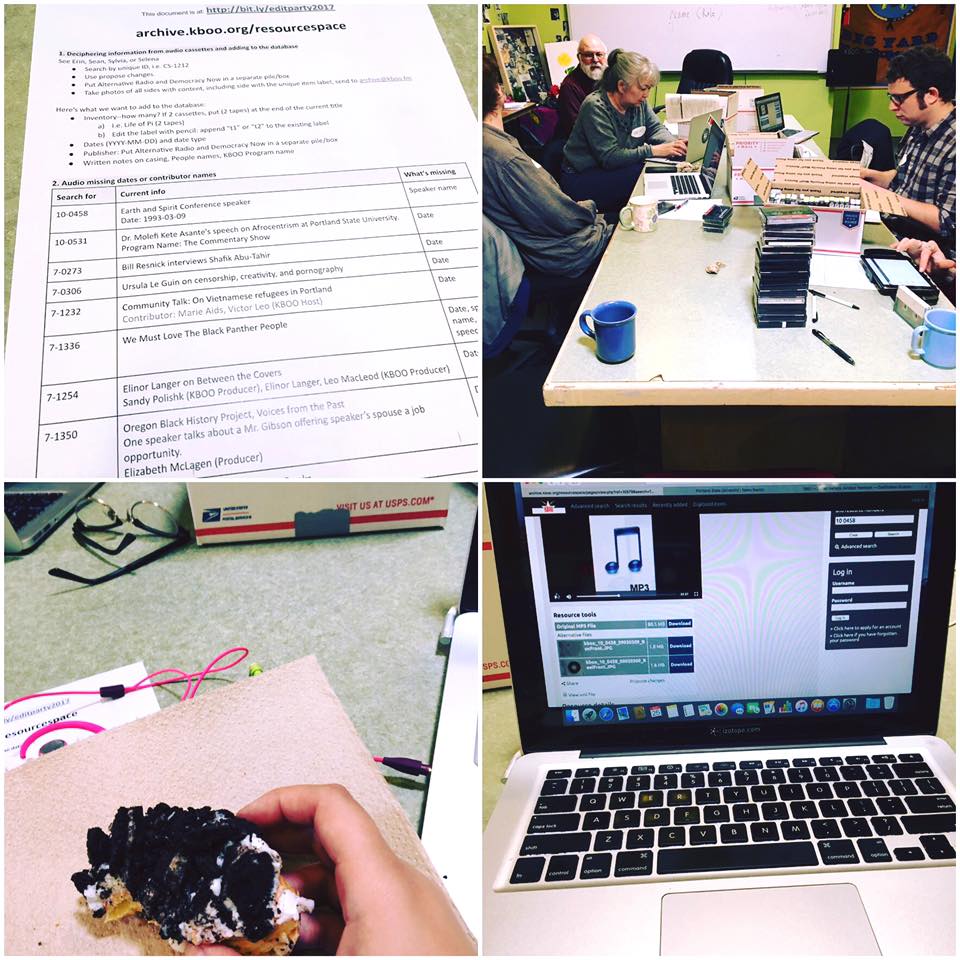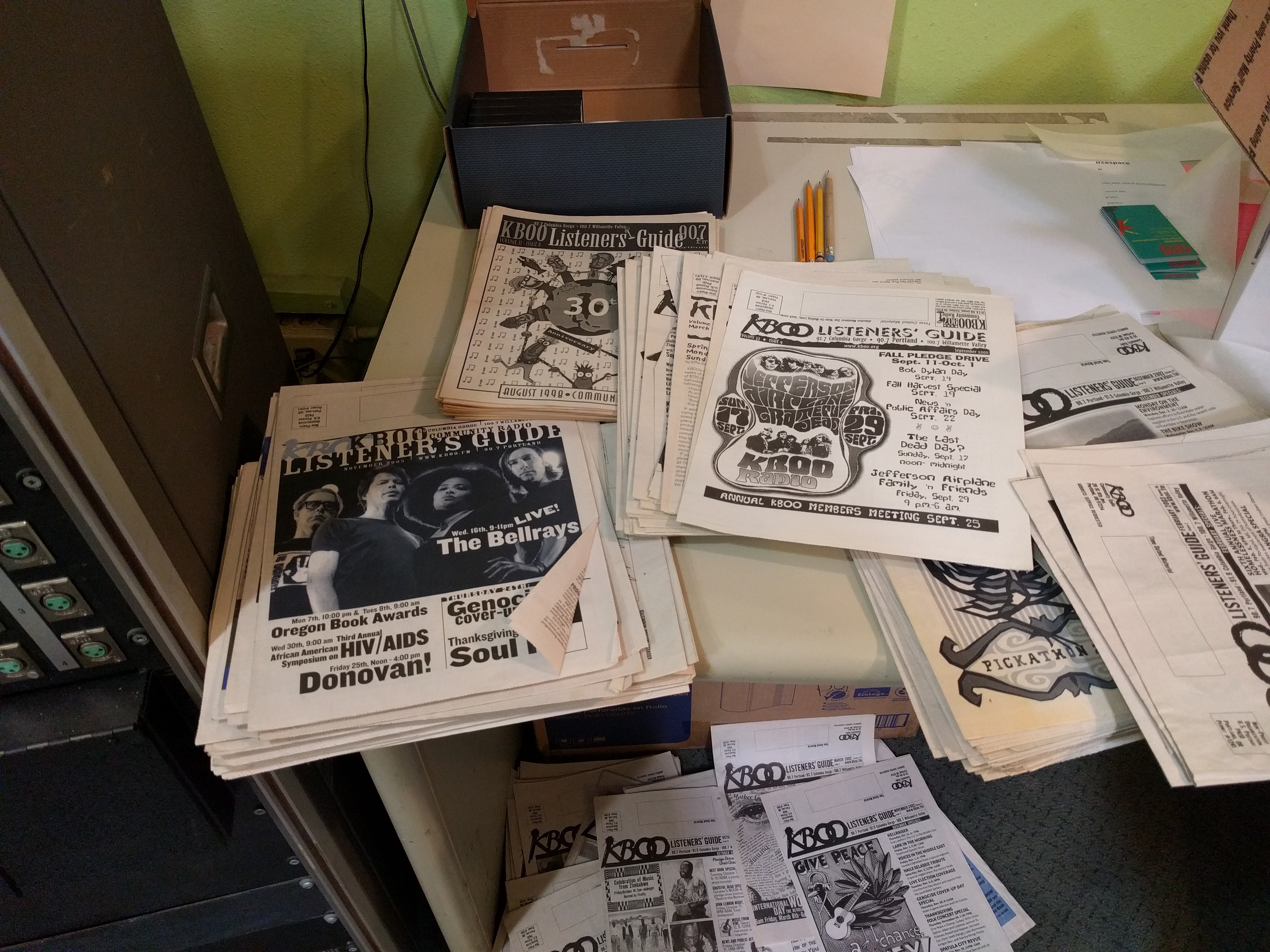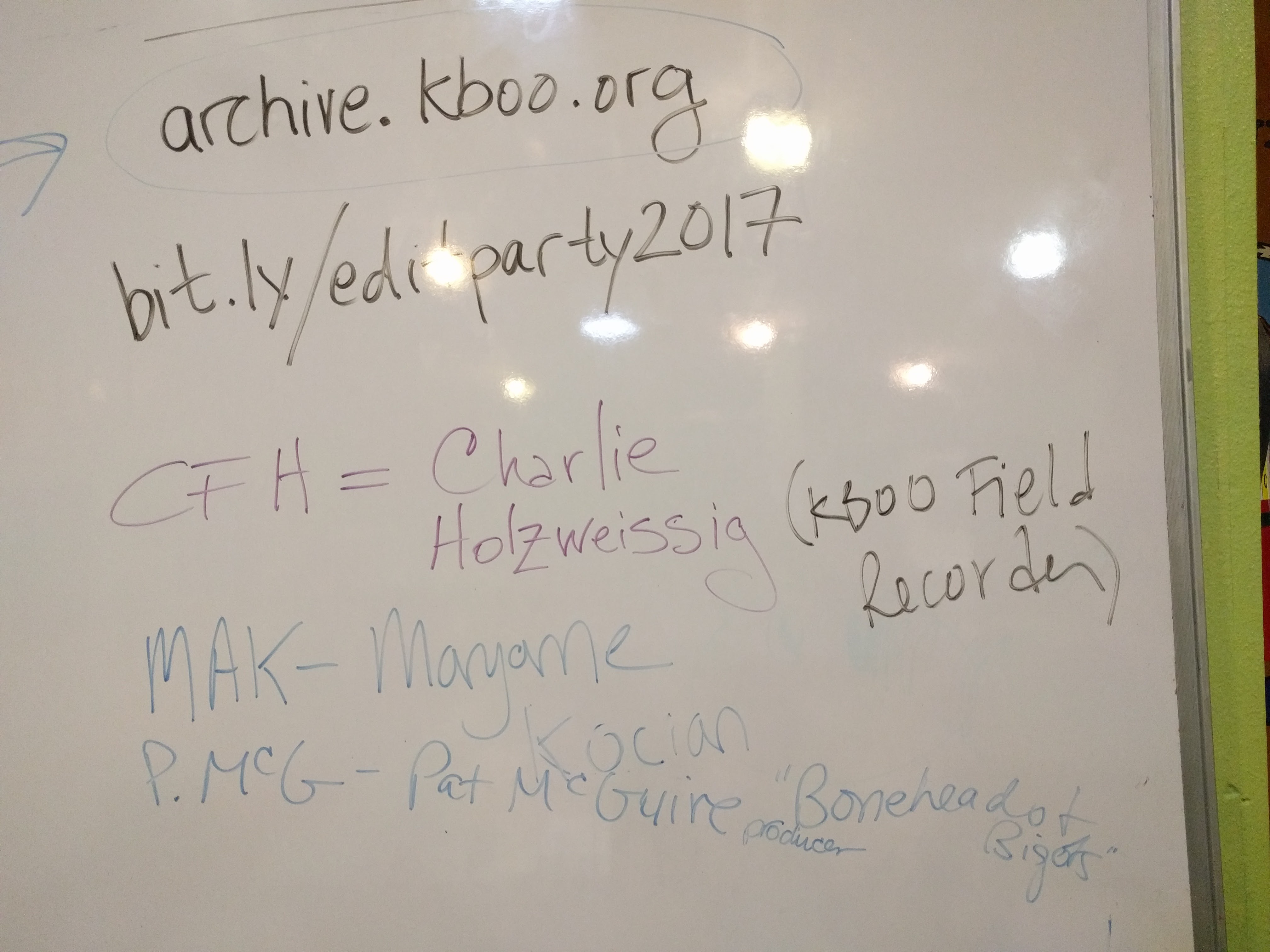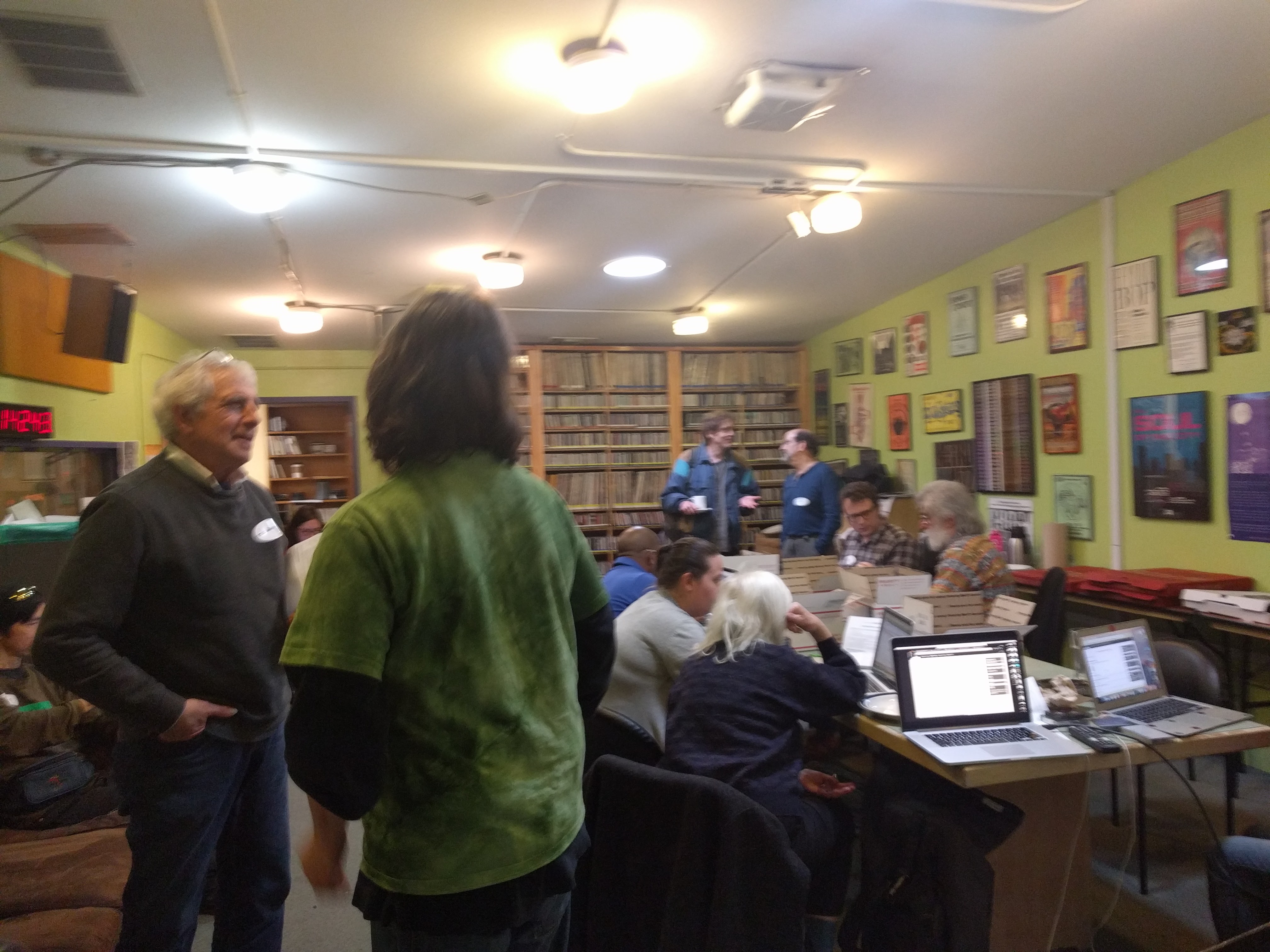KBOO Community Radio has nearly 50 years of radio broadcast audio that represents news and perspectives less commonly heard on mainstream media. Its collection has been developed through individuals’ personal responsibility and action. Older recordings exist because they were recorded from on-air broadcast by KBOO’s long time news and public affairs director, or by board operators during shows. When I work with the older materials, I have questions that go unanswered by my contemporaries but are necessary to document the content, date it, and know who created it. I wanted to get volunteers in a room so that we could find answers to these questions!  Photo courtesy of Sylvia Podwika
Photo courtesy of Sylvia Podwika
KBOO is a community radio station, which means volunteers run the station, with long-time volunteer hosts producing shows, training new volunteers, and being part of station committees. However, there wasn’t an existing cadre of archives volunteers. I developed tools and workflows for digital preservation and recruited two MLIS students to help me get the project up and running, but there still is no guarantee that this work will continue. The sustainability of archiving projects requires visibility and understanding in order to maintain levels of support in staffing, resources, and technical infrastructure for continued work. To increase visibility and understanding of current archives work, I combined archives outreach with volunteer engagement and organized KBOO’s Archives Database Edit-a-Thon and Reunion event. The goal was to have past KBOO hosts come back and share their knowledge of KBOO news and public affairs programming while volunteers who value documentation (librarians and archivists) help get these details into our archives management database.  Photo courtesy of Sylvia Podwika
Photo courtesy of Sylvia Podwika
I planned two structured activities, and also knew that we wanted to ask specific attendees targeted questions about the content they were familiar with. One of the activities was a fill-in-the blanks style task to decipher shorthand and written notes on the audio cassette to fill in specific fields in the archive database such as title, description, date, date type, contributor, and written notes on casing. Volunteers could also take photos of the casing to add to the database, or listen to audio. The second activity was listening to mystery content, i.e. a speaker at an event, with no speaker name, location, or date recorded. Some of these examples seem almost impossible but are useful to educate people on why certain metadata fields are important for search and discovery. And if someone recognizes a voice, then the mystery can be solved. It takes the right combination of people with unique knowledge to identify unique items. Our database supports “proposed changes” so that people didn’t have to be highly trained on metadata requirements. I gave basic instructions and knew that any proposed change could be understood in post-event editing. The information received, once reviewed, becomes part of the record of our station’s content.
Results? It worked! We found that success was had by:
- Clearly defining outcomes and expectations
- Staying flexible for people to work on their own, at their own pace, or with help
- KBOO being KBOO: there is already a spirit of volunteerism in this community
- Having KBOO people from its different decades available to provide insight: the 1960s, 1970s, 1980s, 1990s through current day hosts.
- Having dedicated helpers
- Donuts and coffee, pizza and seltzer water
Outcomes
- People had fun!
- Mysteries were solved!
- There were reunion moments: hugs and photos
- Everyone learned more about what KBOO is doing with their news and public affairs audio collection and contributed in a hands-on way
- Individuals asked how they could get more involved with archives work
An archives event like this is replicable and valuable for other public broadcasting stations or archives. Each station will have to define outcomes and make a pathway for success for themselves and their participants based on how their archive is set up. For our Edit-a-Thon event, volunteers responded to making tangible archives contributions and understanding the real day-to-day work of archiving.
Lessons learned
Tech preparation was important. Our database is on our network server, inaccessible online and our largest event space doesn’t have computers in it. We bought a wifi access point and had our IT contractor set up a temporary secure wireless internet address so that participants could work with the database for the day. Receiving RSVPs of people with laptops was important, and having extra laptops was important. Even so, we didn’t have enough computer spaces and had to start showing people how to do the work on computers in the hallways, which took away from the intended group feel of the event. We referenced old listener guides, too
We referenced old listener guides, too
When promoting the event, it was difficult to describe an edit-a-thon, which is not surprising considering that the work I’m doing doesn’t come into the view of what most people think or know about archives. I had flyers, blurbs in newsletters, and on-air promos but still had people contact me for clarification. The short, engaging description of the event could be better.
People didn’t just come. They were asked multiple times by email and in person, called directly, and may have felt an obligation to come. Recruiting the right people was the most important part of this event and took the most time. I worked with KBOO’s volunteer coordinator and only contacted people who had left on good terms. KBOO’s program director also had suggestions of people who would hold a great amount of knowledge, such as former station managers. I also targeted individuals whose content was in the database but with important information missing. Although it was appropriate for the general public, participants self-selected based on their existing interest in archives: I asked for help posting in Northwest and Portland area archives calendars. Although I was only expecting library/archivist types and former KBOO staff and volunteers, we had a radio listener come in as well. We had 21 RSVP-ed participants for the 6 hour event, which we broke into two shifts: 10am-1pm and 1pm-4pm. Three of us were dedicated helpers/planners. Some people stayed for more than one shift, and there were additional people who stopped by out of curiosity with whom I was able to talk about archives and invite to buddy up with event participants doing work.  What is CFH and MAK? Some mysteries solved
What is CFH and MAK? Some mysteries solved
We didn’t schedule in breaks. Breaks would definitely be a requirement in future event plans so facilitators could be reminded to take a moment. It took a lot of energy to be “on” for over six hours. In our debrief, we talked about the benefit of planned share-out sessions for the entire group in future events, where we collectively would take a break to share some fun discoveries.
Most attendees were one-time participants, but this event successfully recruited two individuals who enjoyed the work and were eager to continue working on archives projects after the event.



